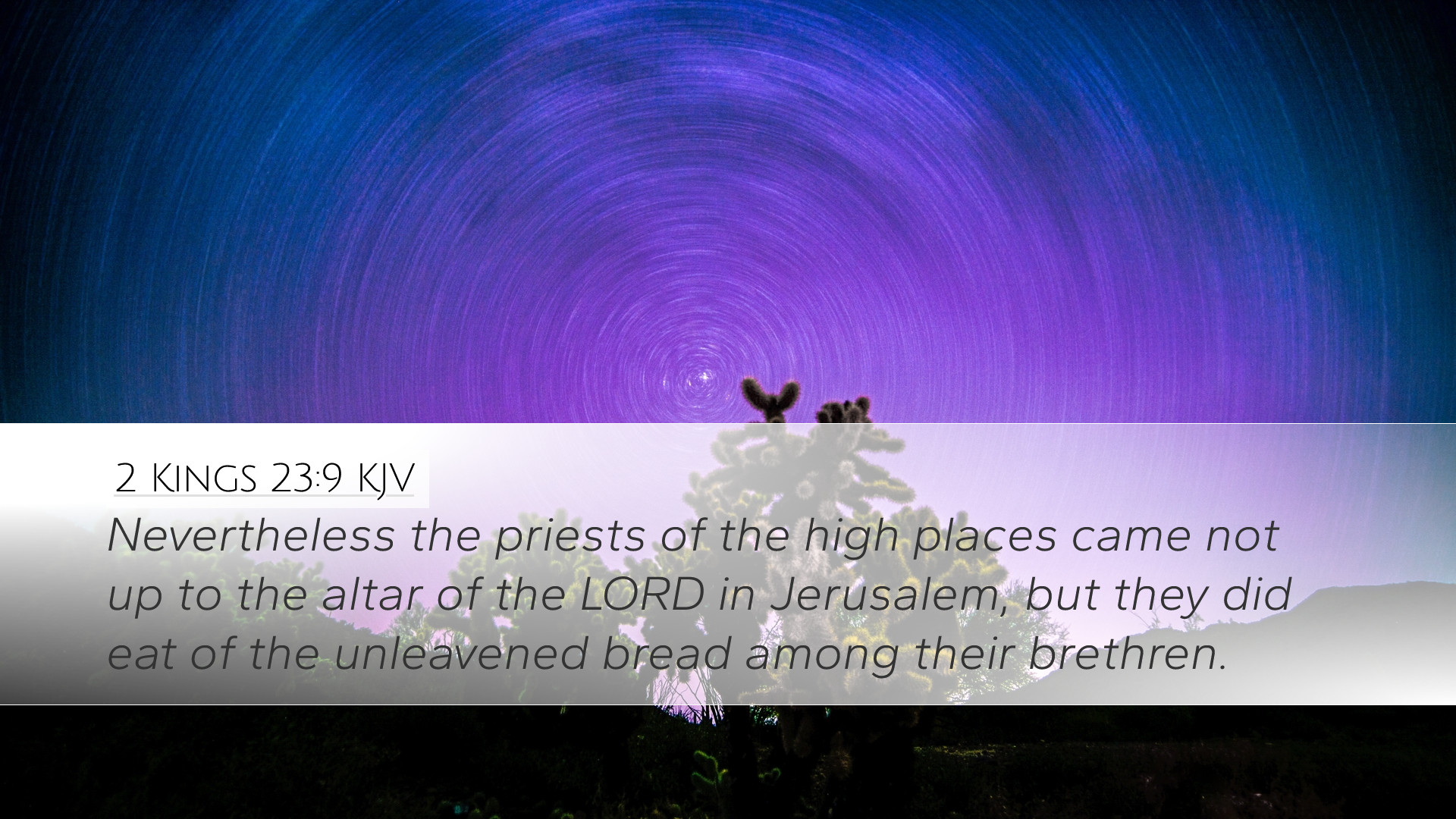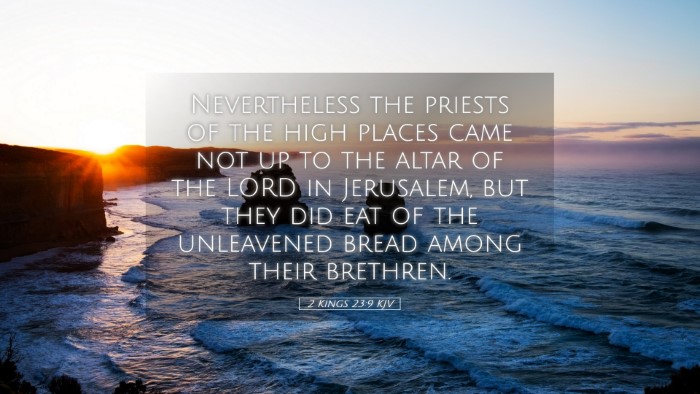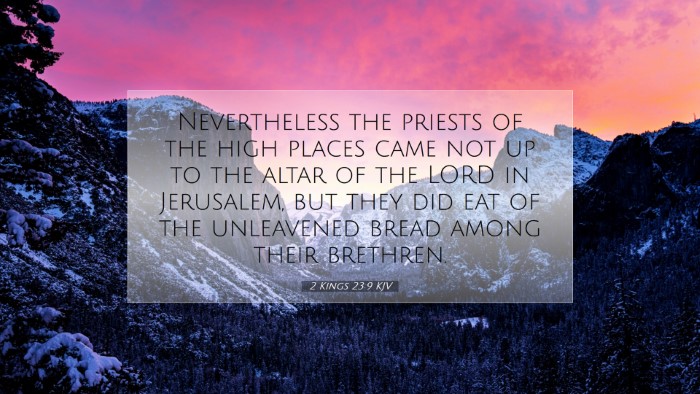Commentary on 2 Kings 23:9
2 Kings 23:9 states, "Nevertheless the priests of the high places came not up to the altar of the Lord in Jerusalem, but they did eat of the unleavened bread among their brethren." This verse provides significant insight into the religious reforms enacted by King Josiah and the state of the priesthood during this period.
The Context of the Reforms
King Josiah's reign is marked by his attempts to purify the worship of Yahweh in Judah. Historical context reveals that prior to Josiah's reforms, idolatry and the worship of high places had proliferated among the people of Judah. Matthew Henry comments on the gravity of the situation, highlighting that the high places were a persistent source of sin even after reforms were undertaken.
The Role of the Priests
This verse specifies the condition of the priests who served at these high places. Albert Barnes emphasizes that the priests, while affiliated with the worship of the high places, were not permitted to engage in sacrifices at the Temple in Jerusalem. This exemplifies the tension between established religious practices and the centralized worship that was reinstated by Josiah.
-
The Decay of Authority: The priests of the high places reflected a compromised authority within the priesthood. Adam Clarke points out that the continued existence of these priests highlighted a schism in the worship of Yahweh, indicating that many were not wholly committed to the reforms.
-
The Nature of Worship: Even as they were sidelined from offering sacrifices in Jerusalem, these priests still partook in communal meals, implying their ongoing participation in some form of worship. This illustrates how ingrained the old practices remained among the people and the clergy.
-
Concession and Compromise: Henry suggests that this arrangement of the priests eating unleavened bread among their brethren may denote a concession made to prevent any disruption among the people. The allowance for this practice showed the complexities involved in Josiah's reforms, navigating both reform and continuity.
The Symbolism of Unleavened Bread
Unleavened bread is rich in biblical symbolism, often associated with purity and the removal of sin. Albert Barnes notes that this connection carries an implication of the spiritual state of the priests—they were not wholly pure as they still practiced their previous connections poorly defined by high places worship.
-
Spiritual Implications: The consumption of unleavened bread conveys a paradox of spiritual conditioning; priests accepting what was permitted while remaining outside of full restoration signifies unresolved spiritual upheaval.
-
Communal Identity: Their participation in the meal, albeit outside the Temple, illustrates a community identity that, despite reforms, continued to reflect a divided allegiance between the high places and true worship of Yahweh.
Lessons for Today's Church
The situation described in 2 Kings 23:9 holds pertinent lessons for contemporary faith communities. Adam Clarke articulates that the struggle against compromising practices remains relevant, emphasizing the necessity of maintaining fidelity to the centralized worship of God.
-
Importance of Centralized Worship: The need to gather around central truths and commitments to God should guide church practices today, just as Josiah sought a return to true worship.
-
Awareness of Cultural Influences: The scenario encourages a keen awareness of cultural influences in worship. Like the priests, believers may find themselves caught between traditional practices and a call to reform.
-
Unity and Division: The passage challenges the church to reflect on the divisions that may exist within its ranks and calls for unity in purpose without compromise on the integrity of worship.
Concluding Reflections
2 Kings 23:9 thus stands as a pivotal reference point in understanding the complexity of religious reform, priesthood roles, and the tension between tradition and renewal. As Henry rightly observes, the persistence of the high places serves as a warning against complacency in the spiritual journey. The themes of worship, identity, and integrity provoke continuous reflection and reform in the hearts and practices of God's people.


